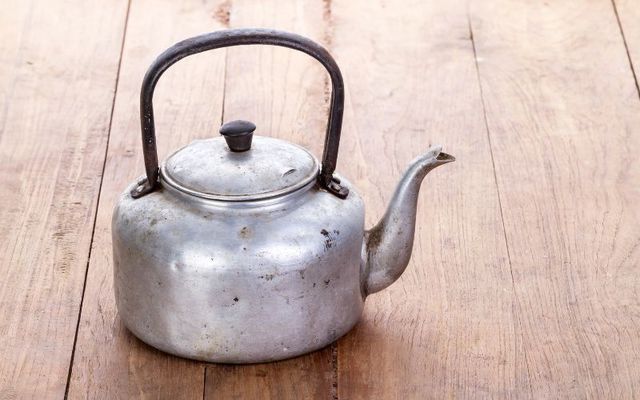Poor women who drank tea were viewed as irresponsible as whiskey drinkers in early 19th-century Ireland, research by Durham University unearthed in 2012.
In her 2012 journal article "'A Raking Pot of Tea': Consumption and Excess in Early Nineteenth-Century Ireland," Dr. Helen O'Connell of Durham University found that critics at the time declared that the practice of tea drinking - viewed as a harmless pastime in most past and present societies - was contributing to the stifling of Ireland's economic growth, and was clearly presented as reckless and uncontrollable.
Women who drank tea wasted their time and money, it was said, drawing them away from their duty to care for their husbands and home. It was felt this traditionally female responsibility was vital to progressing the national economy.
Pamphlets published in England at the time suggest that the concerns about tea drinking were also felt widely outside Ireland. Some believed it threatened the wholesome diet of British peasants and symbolized damage to the social order and hierarchies.
According to the paper that was published in the academic journal Literature and History in December 2012, reformers singled out tea drinking amongst peasant women as a practice that needed to be stamped out to improve the Irish economy and society.
Dr. O'Connell, who analyzed pamphlets and literature from that time, said: "Peasant women were condemned for putting their feet up with a cup of tea when they should be getting a hearty evening meal ready for their hard-working husbands.
"The reformers, who were middle to upper-class, were trying to get the peasant women to change their ways, albeit in a somewhat patronizing way, for the greater good of the country.
"The reformers made it clear they saw tea-drinking as reckless and uncontrollable."
Pamphlets the reformers distributed to peasant households lambasted tea drinking as a luxury poor women could not afford and which could even cause addiction, illicit longing and revolutionary sympathies.
It was also said that tea drinking could even be akin to being a member of a secret society, a belief that heightened political anxieties at a time of counter-revolution within the Union of Britain and Ireland.
English reformers were equally worried about sugar -- tea was always sweetened then -- and its connotations with slavery and the controversial plantations of the West Indies.
Dr. O'Connell said: "The prospect of poor peasant women squandering already scarce resources on fashionable commodities such as tea was a worry but it also implied that drinking tea could even express a form of revolutionary feminism for these women.
"If that wasn't enough, there were also supposedly drug-like qualities of tea, an exotic substance from China, which was understood to become addictive over time.
"It is unsurprising that tea consumption would generate considerable anxiety in Ireland in this period."
One pamphlet in 1811 by reformer and writer, Mary Leadbeater, tells the story of two female friends. Rose warns her friend Nancy that 'must not every poor man's wife work in and out of doors, and do all she can to help her husband? And do you think you can afford tea, on thirteen pence a day? Put that out of your head entirely, Nancy; give up the tea for good and all.'
*Originally published in 2012, updated in January 2025.




Comments